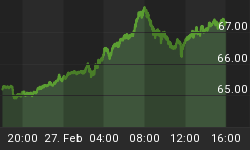A study and observation of credit trends is integral to any financial and economic forecast. As the lifeblood of the economy, credit growth is essential to maintaining equilibrium and keeping the economy on an even keel. So when credit growth begins to slow down, it obviously has negative consequences for the country's economic prospects.
As Vinod K. Dar of Dar & Company summarizes so concisely: "Credit fuels growth. Lack of credit shrivels growth. Credit is the great governor and choke point on growth. Individuals, companies, industries and nations that treat credit providers well, do well themselves....There are no growth countries, industries or companies where there is oxygen (i.e., credit) deprivation. It is as simple as that."
Dar continues, "Recall that the stock market boom, which became a bubble in the late 1990s, was a telecom/internet equities boom and bubble fired by first aggressive and then maniacal credit expansion. This credit expansion consisted of over $1 trillion in bank/bond debt and unknown billions of dollars in vendor financing to telecom/internet companies." He points out that when the equity bubble burst, the credit spigot was turned off so tightly that entire sectors of the telecom/internet industry imploded, which caused a sharp tightening in private credit throughout the business economy.
But credit quality is also a function of economic/accounting data and the market's perception about the future prospects for growth. Market opinions are naturally subject to mood swings and this in turn influences the market by virtue of the psychological backdrop.
Opinions about the future are also reflected in the increase in stock market volatility, which can also be used as a measure of fear and optimism. As Samuel J. Kress of SineScope recently observed, "Since December, volatility (fear) has become prevalent. Typically this is indicative of a topping [process]." Could we be experienced an intermediate-term "topping process" in credit growth?
The excellent web site bullandbearwise.com points out: "The Federal Reserve's purchases of securities for its account has flat-lined since the beginning of this year, while foreign purchases have picked up. Essentially, only foreign interests have been fueling our credit growth." Note the chart below which illustrates this point.

There has also been a notable flattening out in the growth curve of M1 money supply, as some Fed observers have already made reference to. And of course there is the rather pronounced decline in MZM rate of change that we examined in the previous commentary.

A growing list of indicators and data suggest a slowing down of credit growth and a return to a more "normal" level of economic activity. Unfortunately, however, the rate of change slowdown that we'll likely experience this year will seem dramatic to some compared to the opulent growth of the past 2-3 years. Investors who have over-extended themselves with debt will suffer the most while those who have built up ample supplies of cash will fare best.















